Out With The Old, In With The New!
My Plan To Get Better Sleep In 2022

How important is sleep?
For some time now, sleep has been considered simply a period of time during which the body and brain go into a state of stasis. However, current studies show that the body and brain actually continue to function fully throughout our many sleep cycle stages. Indeed, our bodies and minds require these stages of sleep in order to maintain our health and be able to support peak performance. The total amount of quality sleep that we get, and how we visit each one of our sleep stages directly impacts how rested we feel the next day.
So, what exactly is the reason for sleep? Well, first of all, sleeping allows our brains to rejuvenate. It gives our minds the opportunity to sort out, organize, and file all of the information that has been collected during our waking hours. This cognitive upkeep while we sleep seems to help us learn better and increase our creativity.
Getting quality sleep is also important when it comes to our physical healing, energy level, mental stability, and maintaining a healthy body. While we sleep, all of our bodily functions slow down quite a bit compared to while we are awake, including our brains. This allows our brains to go through our various sleep cycles which in turn gives us a feeling of refreshment when these sleep cycles have been reached.
What happens when we don't get enough sleep?
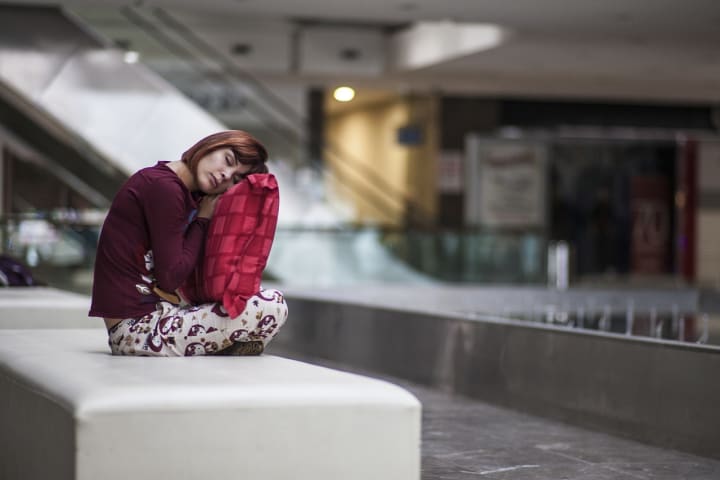
Not getting enough sleep is called Sleep Deprivation. When this happens, we can experience daytime sleepiness, and mental and physical fatigue. These can be rectified by getting more sleep, but when sleep deprivation is chronic, it can lead to more than fatigue. Chronic sleeplessness (Insomnia) may bring on various serious issues such as physical, emotional, and mental disorders, and can produce negative interactions with others. In fact, it may be a contributing factor to many causes of death.
Some of the emotional effects of going without sleep for a long time is that you may become more irritable, be far less patient with other people and/or situations, or even display aggressive tendencies if you're too fatigued. Lack of proper sleep has also been connected with inappropriate behaviors and troubled relationships. It's been shown that even a minimal degree of sleep deprivation is a decided factor in Depression and Anxiety - meaning that people who suffer from insomnia are far more prone to depression.
The fact of the matter is that we need sleep in order to have a clear mind, quick reflexes, and facilitate memories as we go through our day. Not only that, but sleep, good sleep, is a fundamental building block to our health. When we don't get enough quality sleep consistently, we increase our chances of High Blood Pressure, heart problems, Diabetes, and even (believe it or not) Obesity. It has been shown that when people sleep less, they tend to eat more, and eat foods higher in calories thus contributing to obesity and, in many cases, diabetes.
Insomnia
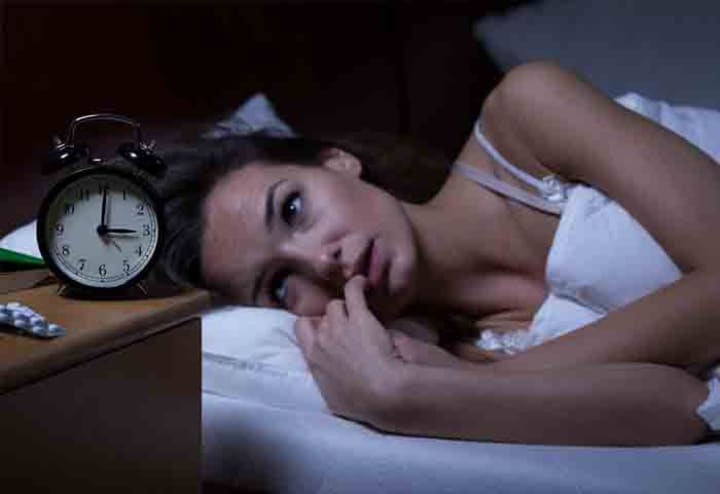
As mentioned before, insomnia is basically chronic sleeplessness. It's when no matter how badly you want to sleep, or how tired you may feel, you simply cannot fall asleep for one reason or another. For me, insomnia has manifested itself in either a restless mind, restless legs, or maybe a combination of both at the same time. In fact, often times the overwhelming desire to fall asleep is exactly the thought patterns that keep me awake. Other times, it's my body that refuses to stop sending motion signals to my brain. I either can't get comfortable or my legs twitch. There is one other prevailing barrier to getting a good night's sleep and that is Sleep Apnea. No matter the prevailing reason at the time, sleep eludes me like a facetious lover, and I know without a doubt what the next day will be like.
Depression and Anxiety
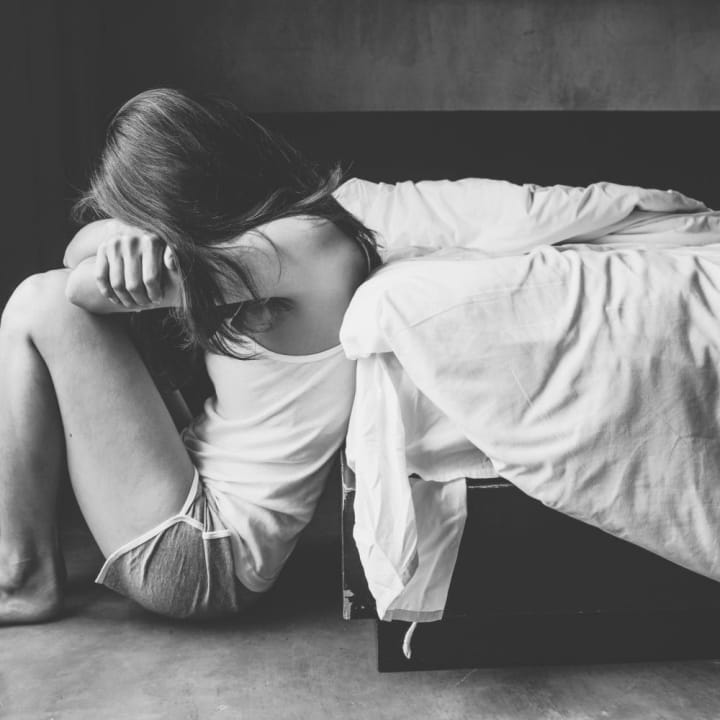
I didn't realize that my depression and anxiety were directly related to my lack of sleep until it was confirmed by both my primary care physician and my therapist. The funny thing is that depression makes me tired, and yet my insomnia refuses to allow me respite. This combination is so intensely frustrating that at times I just want to cry. And this also, this desire to sleep but not being able to, is a major contributing factor to my anxiety. The more tired I become, the less I'm able to sleep, the more my anxiety increases. It's a cycle that I desperately want to eradicate.
Fibromyalgia
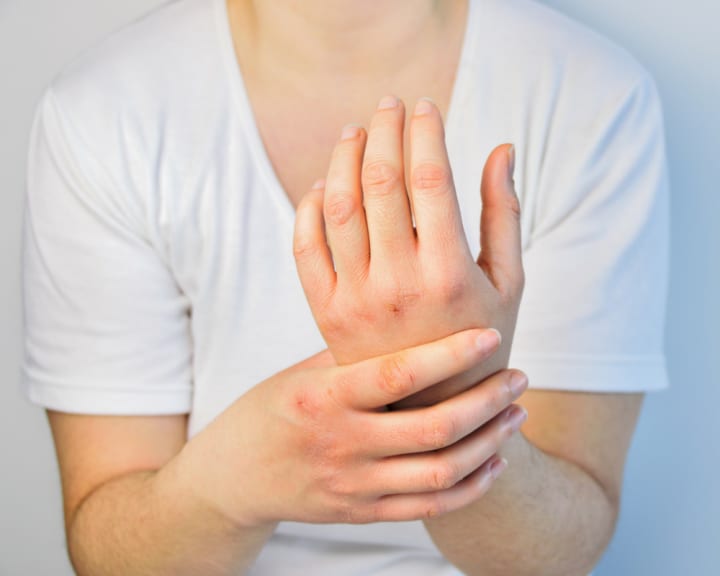
It was also a revelation to me (when I was diagnosed with Fibromyalgia) that insomnia contributes to the pain and fatigue of this oftentimes debilitating disease. This happens because a lack of sleep decreases the pain threshold and can worsen fibromyalgia symptoms.
Migraines
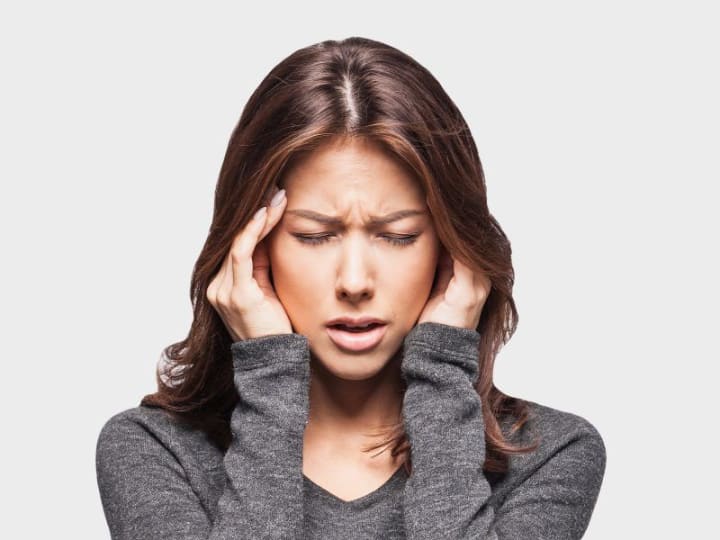
I was rather disturbed, when I had my first Migraine, to discover that insomnia can be a contributing factor for migraines as well. With both migraines and insomnia, it makes sense that I am also suffering from both depression and anxiety disorders.
Sleep Apnea
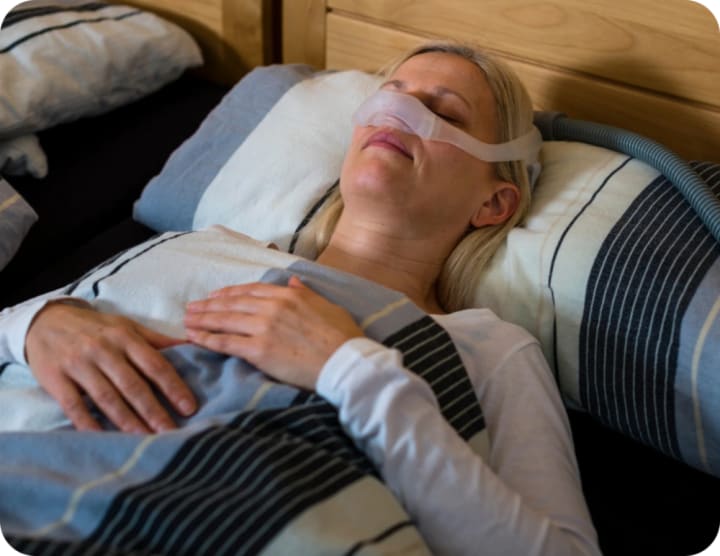
When you have Sleep Apnea, the brain consistently inhibits your ability to achieve deep, REM sleep in order to avoid the experience of apneas, when you stop breathing while sleeping. The brain detects each time that apneas occur and rectifies the situation by stimulating the affected muscles, thus causing the dreaded insomnia. Now this is a different sort of insomnia in that it actually happens while you remain asleep. I didn't know that until I was recently diagnosed with sleep apnea and the technician explained it all to me in great detail. So, it would appear that I actually suffer from two types of insomnia; the kind that prevents me from falling asleep and the kind that, once I am asleep, keeps me from reaching all of the stages in the sleep cycle that are necessary for restful sleep.
Is medication helpful?

After being diagnosed with all of this, I have tried a multitude of various medications to help me sleep better and deal with the myriad symptoms. Some have been immensely helpful, decreasing the pain and giving me a modicum of relief from the overwhelming fatigue, but some have been repeatedly replaced with other medications in search of ones that will work to my maximum benefit. It still remains to be seen if my doctors and I can come up with a medicinal cocktail that will bring me back to a semblance of my original health.
In addition to the medications, I now have in my possession a CPAP machine. This lovely little device - and it is much smaller than its predecessors - not only keeps my airway clear so that apneas happen much less frequently, allowing me to reach all levels of the sleep cycle, it also delivers increased oxygen to my brain thus reducing my Chronic Fatigue. Now you may think that the noise of the CPAP machine would aid the insomnia, but this little device is silent. So, I have hopes that it will be helpful and, I can use it during the daytime as well to keep my brain oxygenated and functioning properly.
Mattress choice
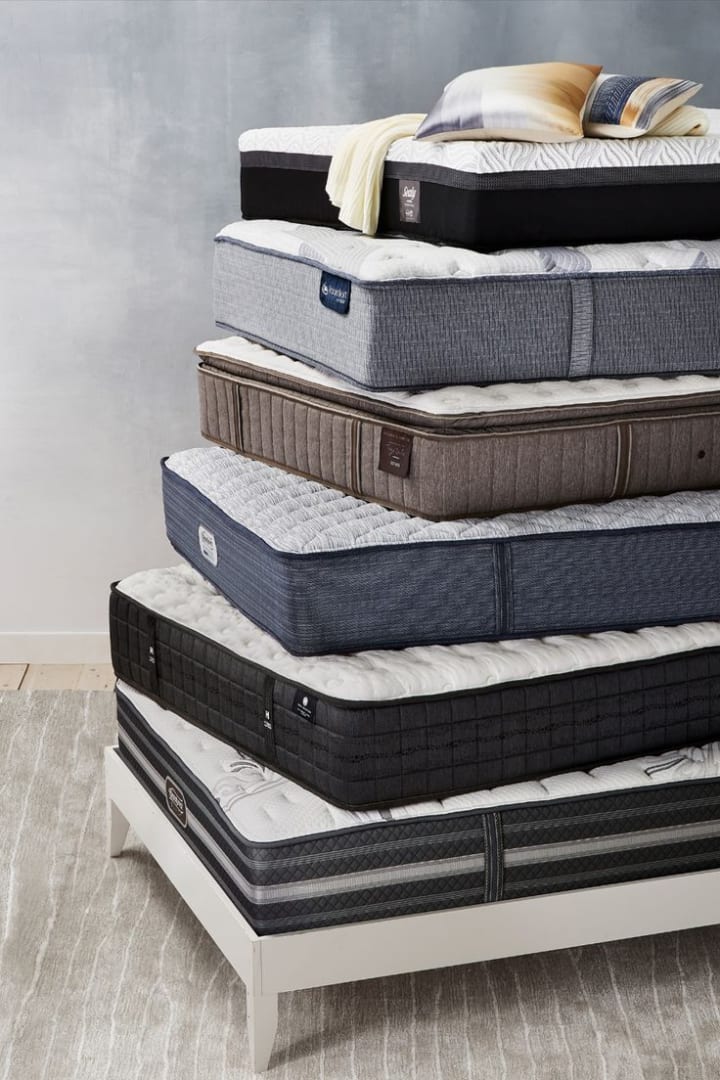
Now, while medication and medical equipment is extremely important in combating and limiting my insomnia, and other medical issues, it can't be the end of the story. There is one more factor to take into account.
What am I sleeping on?
At one point, the only thing that I had to sleep on was an air mattress. I purchased it at Walmart for under $50, brought it home and aired it up. That first air mattress lasted for a few months of constant nightly sleep, but it wore out and was replaced by other mattresses of the same value repeatedly for almost three years.
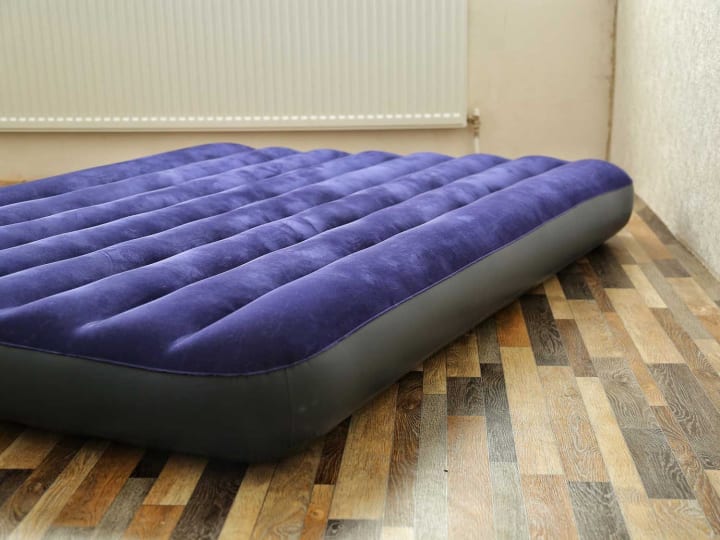
After the air mattress marathon, I invested in a foam mattress, also from Walmart which ran in the neighborhood of around $150. After about four or five months of using that mattress every night, I developed and excruciatingly sore shoulder that had me going to physical therapy for six weeks with a full recovery time of several months. Of course, I quit using that mattress as soon as the pain in my shoulder developed; who wouldn't? I promptly gave it to the dog for her to use as a bed (which she loves, by the way).
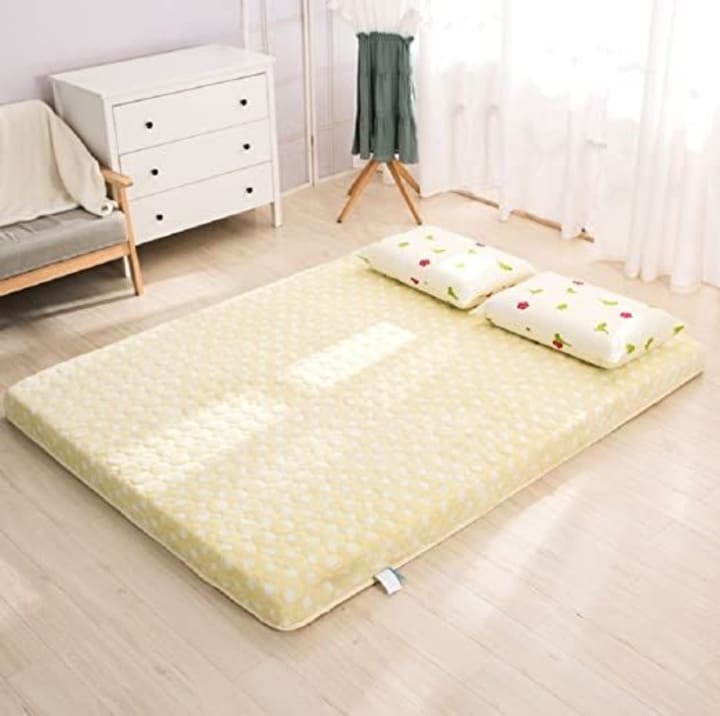
My next, and current mattress is a foam/spring hybrid that I bought from a local mattress store for roughly $450. I assessed a similar mattress while at the store and found it quite comfortable, therefore I honestly believed that it was a wise investment. However, since I hadn't tested the exact mattress that I purchased, I soon discovered that I was horribly mistaken. The mattress that they had sold me was firmer than the one that I had tried out in the store, and it left me with pressure points on my hips and shoulders. So, the only way that I can sleep comfortably is on my back, thus exacerbating my sleep apnea and restless leg syndrome.
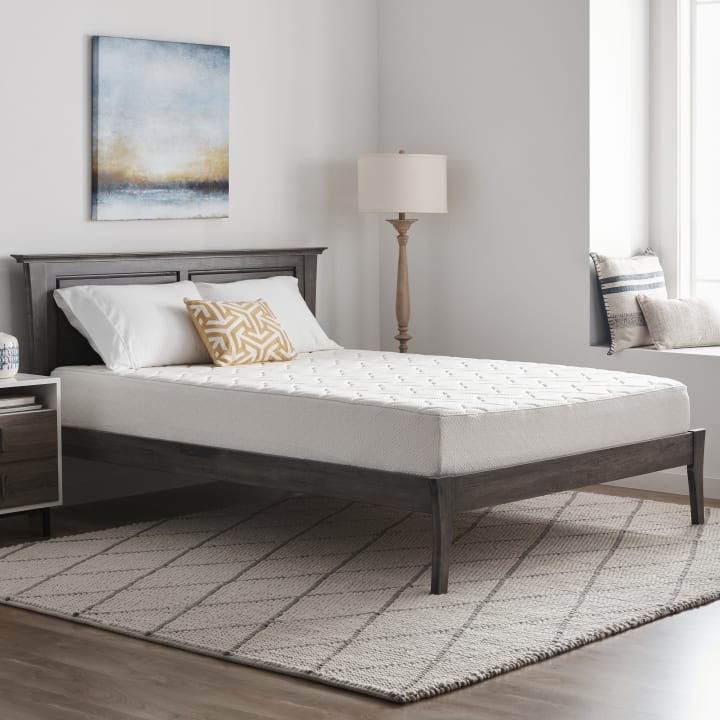
With the new year approaching, and new opportunities becoming available to me, I resolve to make several changes that will aid in my quest to banish insomnia from my life. 2022 is a new year with new and wonderful possibilities!
I intend to implement the following decisive procedures to maximize my health benefits. In addition to keeping all of my medical appointments, both physical and psychological, I will make sure that all of my medications are refilled and taken according to doctors’ guidelines. I will continue using Melatonin nightly as a sleep aid in addition to my various medications, and I will use my CPAP machine faithfully every night, and during the day as needed for optimal brain function. In addition to the physical, I plan to implement a nightly reading schedule, as well as prayer, meditation, and relaxation techniques in order to develop a solid sleep pattern.
However important the aforementioned plan of action is, and it is incredibly important, I must not forget where I sleep. My current mattress, being incredibly unsatisfactory, must go. I've looked into several different types of mattresses and mattress companies but have not found any as compelling as Lull.
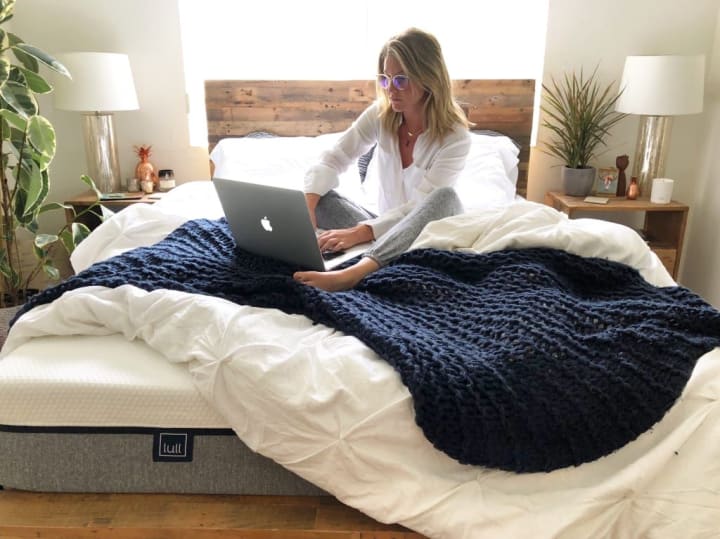
The Luxe Hybrid Mattress by Lull shows great promise in that it is comprised of super soft layers made with materials of supreme quality that promise unparalleled comfort and support. This is something that I need and is particularly important to me. Their ad also states that the tremendously supple foam, in conjunction with a multitude of individually wrapped coils, will accommodate the body to ensure a sublime sleeping experience along with superb bodily support. Not only that, but this mattress contains a cooling gel technology for those of us who sleep hotter, so that the mattress itself keeps a cooler surface while the coils allow for airflow. All of this together promises to provide a much needed restful and comfortable sleeping experience.
After doing my research, and looking into many different options, I have decided that the Luxe Hybrid would make an excellent addition to my sleep regimen. It would be my pleasure to own one of these fabulous mattresses just as soon as my finances allow. It's not just a good night's sleep, though that is priceless, it is an investment.
About the Creator
Sheila Sellinger, Author
Born and raised in the United States, Sheila Sellinger is a Christian author who normally writes adventure romance and biblical fiction, but is now trying her hand at articles and short fiction as well, in a wide variety of styles/genres.






Comments
There are no comments for this story
Be the first to respond and start the conversation.